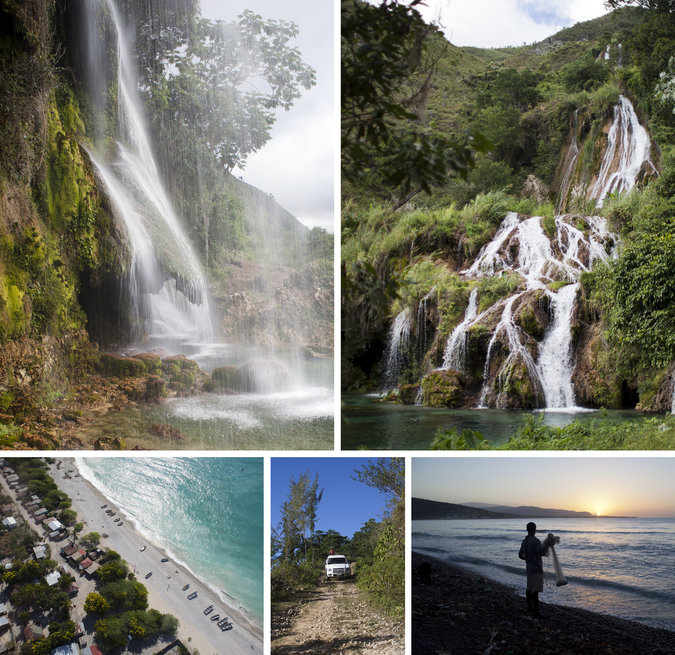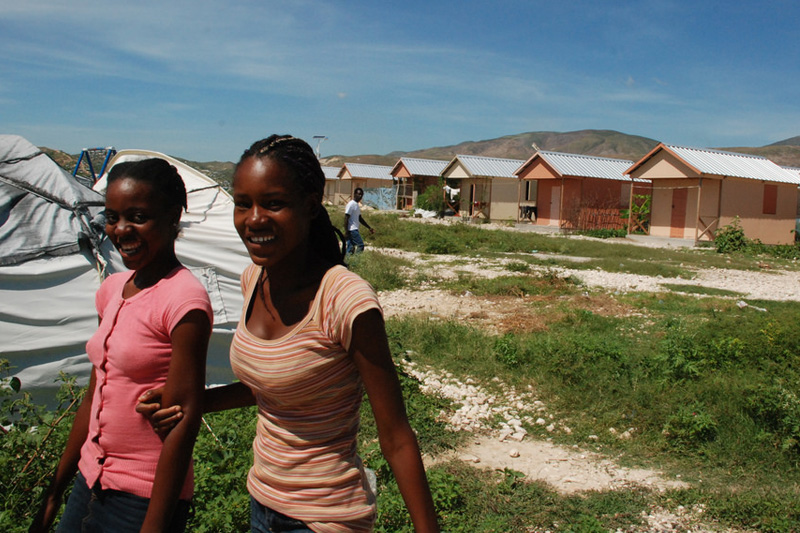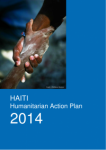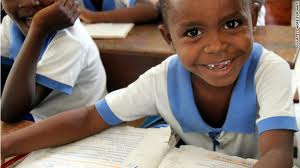Haiti Moves Towards Adoption of Counter-Trafficking Law




 Below is an article by Dean Nelson in the New York Times about a trip taken to some of Haiti's most beautiful and remote sites. Could these sites one day help promote tourism in Haiti? Perhaps with the right physical and human infrastructure to support it. In any case, it is a reminder that there is a lot to see, much of it beautiful, outside of Port au Prince.
Below is an article by Dean Nelson in the New York Times about a trip taken to some of Haiti's most beautiful and remote sites. Could these sites one day help promote tourism in Haiti? Perhaps with the right physical and human infrastructure to support it. In any case, it is a reminder that there is a lot to see, much of it beautiful, outside of Port au Prince.
 The Brookings Institution and the International Organization for Migration (IOM) recently released a report analyzing solutions for those who remain displaced in Port-au-Prince. A key message is that solutions involve more than just closing camps. Solutions happen over the long-term and require the participation of governments, humanitarians, development agencies and the displaced. The executive summary is below and you can read the full report here.
The Brookings Institution and the International Organization for Migration (IOM) recently released a report analyzing solutions for those who remain displaced in Port-au-Prince. A key message is that solutions involve more than just closing camps. Solutions happen over the long-term and require the participation of governments, humanitarians, development agencies and the displaced. The executive summary is below and you can read the full report here.
 The UN has released its 2014 Humanitarian Action Plan for Haiti. While 89% of camp residents have moved out and significant progress has been made against cholera, significant challenges remain such as halting environmental degradation and reducing vulnerability to disasters. The plan focuses on meeting the basic needs of those remaining in the camps, addressing the cholera epidemic, increasing food security, and strengthening the leadership and capacity of national authorities. A summary of the plan follows.
The UN has released its 2014 Humanitarian Action Plan for Haiti. While 89% of camp residents have moved out and significant progress has been made against cholera, significant challenges remain such as halting environmental degradation and reducing vulnerability to disasters. The plan focuses on meeting the basic needs of those remaining in the camps, addressing the cholera epidemic, increasing food security, and strengthening the leadership and capacity of national authorities. A summary of the plan follows.

 Below is a USAID/Department of Education announcement of new funding to support the Room to Learn program in Haiti. Haiti is one of six Room to Learn focus countries, which focuses on improving access to primary education. An estimated 600,000 out of school Haitian children are functionally illiterate. Education is critical for their growth as well for the growth of Haiti's economy, civil society, and institutions.
Below is a USAID/Department of Education announcement of new funding to support the Room to Learn program in Haiti. Haiti is one of six Room to Learn focus countries, which focuses on improving access to primary education. An estimated 600,000 out of school Haitian children are functionally illiterate. Education is critical for their growth as well for the growth of Haiti's economy, civil society, and institutions.

 Below is a New York Times article by David Gonzales concerning a photo exhibit and book by Paolo Woods entitled “State” – the idea of it vs. the reality, how/if it is a part of everyday life, and how society is organized when the capacity of the state to govern is minimal. Based out of Les Cayes, Woods explored these questions through his journalism and photography. Haiti has often been a victim of lazy journalism and sensational photography that over-emphasizes the bad without seeking the good. Woods consistenly sees the good, the positive, and the hopeful, making his exhibit and book worth a look.
Below is a New York Times article by David Gonzales concerning a photo exhibit and book by Paolo Woods entitled “State” – the idea of it vs. the reality, how/if it is a part of everyday life, and how society is organized when the capacity of the state to govern is minimal. Based out of Les Cayes, Woods explored these questions through his journalism and photography. Haiti has often been a victim of lazy journalism and sensational photography that over-emphasizes the bad without seeking the good. Woods consistenly sees the good, the positive, and the hopeful, making his exhibit and book worth a look.